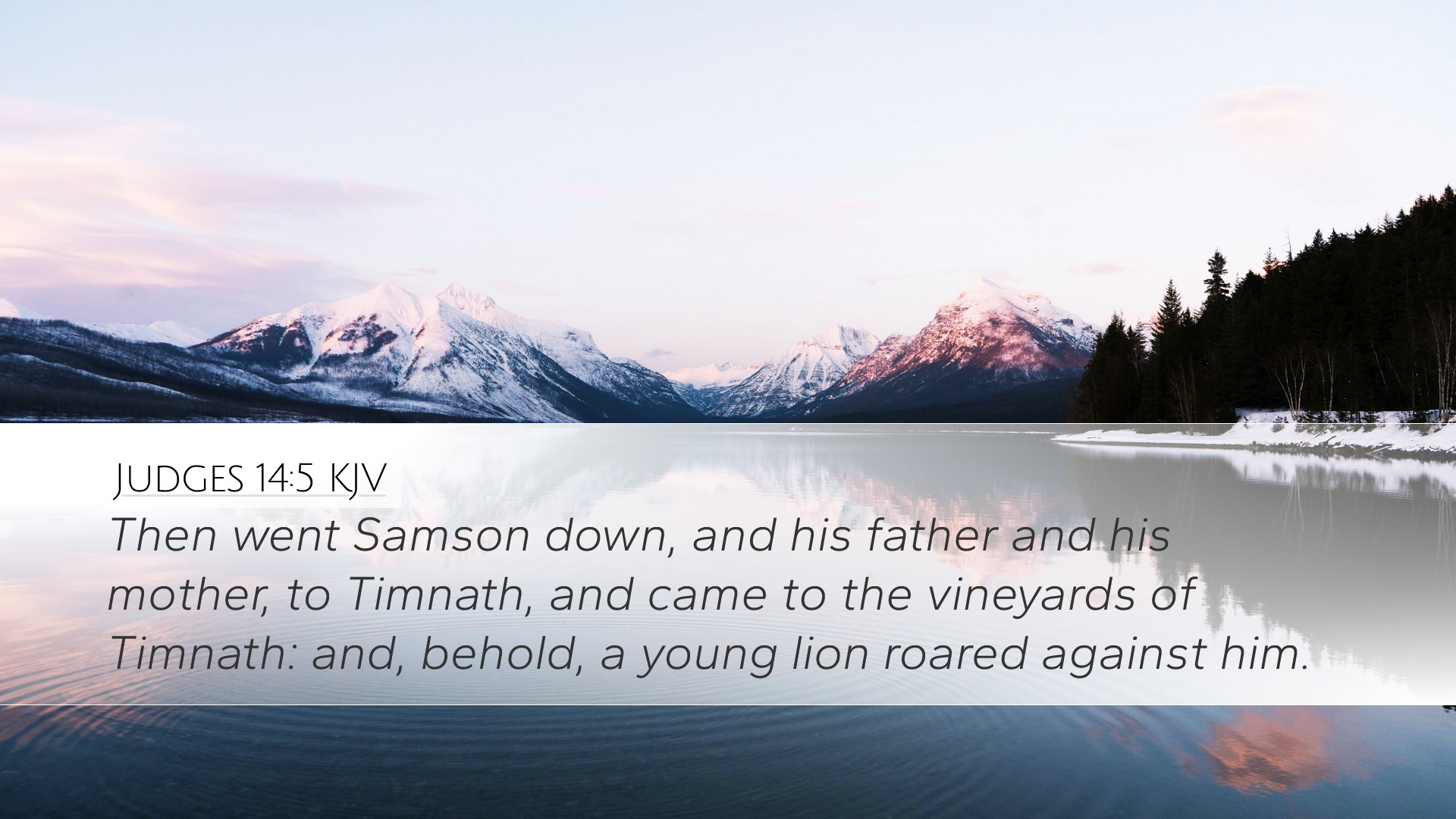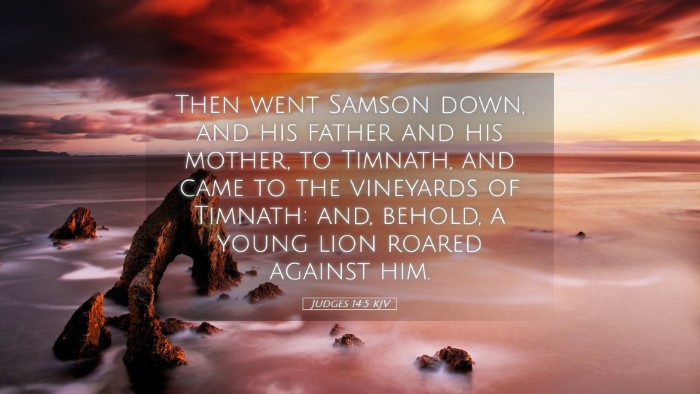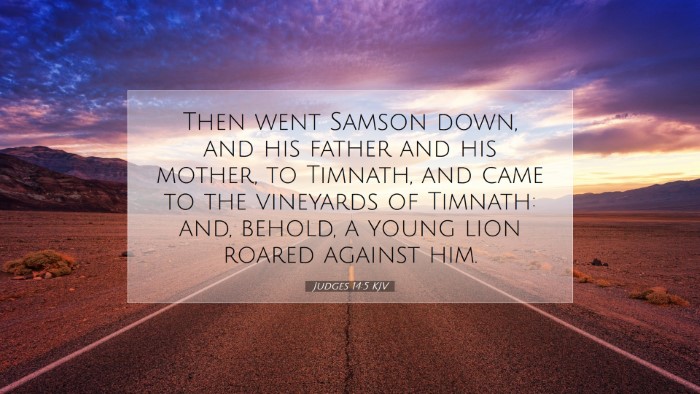Old Testament
Genesis Exodus Leviticus Numbers Deuteronomy Joshua Judges Ruth 1 Samuel 2 Samuel 1 Kings 2 Kings 1 Chronicles 2 Chronicles Ezra Nehemiah Esther Job Psalms Proverbs Ecclesiastes Song of Solomon Isaiah Jeremiah Lamentations Ezekiel Daniel Hosea Joel Amos Obadiah Jonah Micah Nahum Habakkuk Zephaniah Haggai Zechariah MalachiJudges 14:5
Judges 14:5 KJV
Then went Samson down, and his father and his mother, to Timnath, and came to the vineyards of Timnath: and, behold, a young lion roared against him.
Judges 14:5 Bible Commentary
Commentary on Judges 14:5
Verse Context: Judges 14:5 states, "Then went Samson down, and his father and his mother, to Timnath, and came to the vineyards of Timnath: and, behold, a young lion roared against him."
This verse marks a pivotal moment in the life of Samson, a judge of Israel known for his extraordinary strength. Within the context of the Israelite history narrated in the book of Judges, this passage encapsulates themes of divine purpose, personal desire, and the struggles of faith.
Analysis and Insights
Journey to Timnath
Matthew Henry notes the significance of Samson's journey to Timnath. It is important to understand that this trip is not merely a physical journey but symbolizes his descent into realms that were dangerous to his calling. The place itself, Timnath, was located in a Philistine territory, indicating a willingness to flirt with temptation and compromise.
Samson's Family
Albert Barnes elaborates on the presence of Samson’s parents. Their role serves as a reminder of the covenant and expectations placed upon Samson. Their journey reflects the familial duty and the cultural norms of seeking a spouse within the Israelite community, emphasizing the weight of Samson's choices that diverge from familial and divine expectations.
The Vineyards
Focusing on the vineyards, Adam Clarke observes that vineyards often represent both temptation and abundance in the Hebrew Scriptures. The vineyards in Timnath may symbolize the allure of a life intertwined with the Philistines, the very foes of Israel. It hints at the distractions that lead Samson away from his divine purpose.
The Young Lion
The sudden appearance of the lion symbolizes both challenge and danger. As per Matthew Henry’s exposition, the lion represents obstacles that arise in the pathway of fulfilling God's plan. It reflects the fierce opposition that the faithful encounter when they tread paths away from the righteous journey ordained by God.
Furthermore, the lion roaring serves to illustrate the power of fear and intimidation that the adversary uses against the believer. It invites reflection on how believers often face daunting situations that seem insurmountable, yet in those moments lies the opportunity for divine intervention and strength.
Spiritual Implications
Temptation and Choices: This passage raises questions about temptation. How often do believers find themselves moving towards dangerous territories in pursuit of personal desires, thus opening themselves up to greater challenges? The vineyard represents indulgence, and the roaring lion represents the consequences that follow such choices.
Courage and Divine Intervention: The text serves as a reminder of the need for divine empowerment. While Samson would later exhibit immense strength, this initial encounter foreshadows the divine enablement he would receive to overcome obstacles, suggesting that spiritual strength is often revealed in moments of trial.
Theological Reflections
From a theological standpoint, this passage points to the tension between human intention and divine purpose. Samson’s journey, although initiated with family intent, takes a turn that aligns more with personal desire than with God’s will.
Eschatological Themes: Scholars have also noted eschatological themes within Samson's life. His battles against oppression foreshadow the ultimate victory over the forces of evil through Christ. Just as Samson faced down his adversaries, the church is called to confront spiritual warfare with the assurance of victory that Christ provides.
Conclusion
In conclusion, Judges 14:5 serves as a profound reminder of the complexities of human nature, the interplay of divine purpose, and the necessity of vigilance against temptations. For pastors, theologians, and students of the Bible, this verse holds deep insights into navigating life’s choices with a focus on faithfulness to God’s call.


